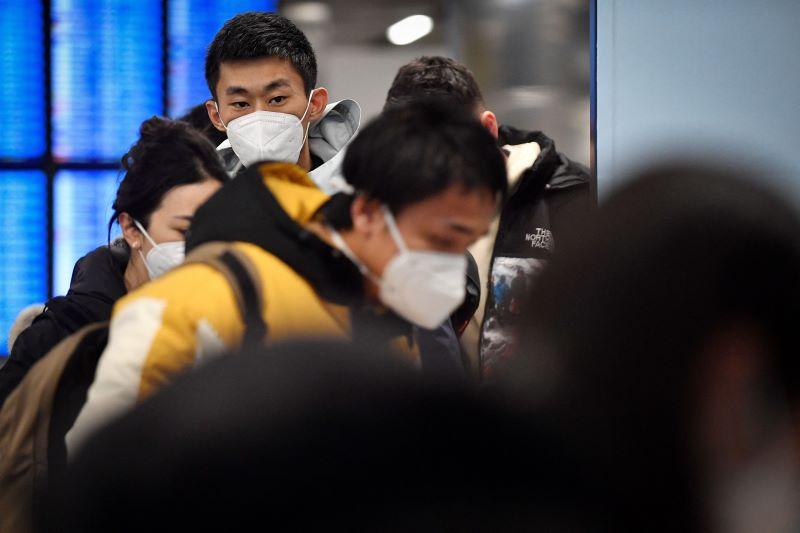
Chinese arrivals in Paris wait to get their documents checked.
PARIS—Decisions by some countries to introduce COVID-19 testing and other measures for travelers arriving from China are “extremely disappointing,” IATA Director General Willie Walsh said.
Those moves have come after Beijing abandoned its zero-COVID ambition, which has allowed the virus to spread across the population as it opens up.
“Several countries are introducing COVID-19 testing and other measures for travelers from China, even though the virus is already circulating widely within their borders,” Walsh said in a Jan. 4 statement. “It is extremely disappointing to see this knee-jerk reinstatement of measures that have proven ineffective over the last three years.”
The lack of consistency within travel regulations between countries was one of the airline industry’s biggest complaints as it struggled to recover from the worst of the COVID-19 crisis, with confusing regulations seen as putting off would-be passengers.
China has lifted quarantine requirements for inbound travelers and removed flight capacity limits. Some countries have reacted to the reopening with new COVID-19 measures. French Prime Minister Elisabeth Borne defended the country’s move to test passengers arriving on flights from China, saying the government was “playing its role” and would continue to test arrivals as it sought to monitor the evolution of the coronavirus.
Italy, Japan, Spain, the UK and the U.S. are among the other countries that have reacted to the reopening with new testing or other requirements for travelers.
“Research undertaken around the arrival of the omicron variant concluded that putting barriers in the way of travel made no difference to the peak spread of infections,” Walsh said. “At most, restrictions delayed that peak by a few days. If a new variant emerges in any part of the world, the same situation would be expected.”
Walsh urged governments to listen to experts including the World Health Organization (WHO), which advised against travel restrictions. “We have the tools to manage COVID-19 without resorting to ineffective measures that cut off international connectivity, damage economies and destroy jobs,” Walsh said. “Governments must base their decisions on ‘science facts’ rather than ‘science politics.’”
In Europe, no overarching restrictions have been announced by the bloc, and the European Center for Disease Prevention and Control (ECDC) has said that variants circulating in China are already circulating in the EU, and as such are not challenging for the immune response of EU/EEA citizens. “In addition, EU/EEA citizens have relatively high immunization and vaccination levels,” the ECDC said Jan. 3. “Given higher population immunity in the EU/EEA, as well as the prior emergence and subsequent replacement of variants currently circulating in China by other omicron sub-lineages in the EU/EEA, a surge in cases in China is not expected to impact the COVID-19 epidemiological situation in the EU/EEA.”
Airports lobby group ACI Europe also criticized the restrictions, saying: “These unilateral actions are at odds with all the experience and evidence gained over the past 3 years. Testing travelers from China and/or imposing other restrictions for travelers from this country is neither scientifically justified nor risk based, as expressly stated in recent days by the ECDC.”
ACI Europe said it was in favor of the approach urged by European Union Health Commissioner Stella Kyriakides, namely increasing genomic sequencing to be able to identify and monitor possible new variants, which could be achieved by actions such as testing wastewater from airports.
“We are once again plunging back into a patchwork of unjustified and uncoordinated travel restrictions, which have no basis in scientific fact,” ACI Europe director general Olivier Jankovec said.
